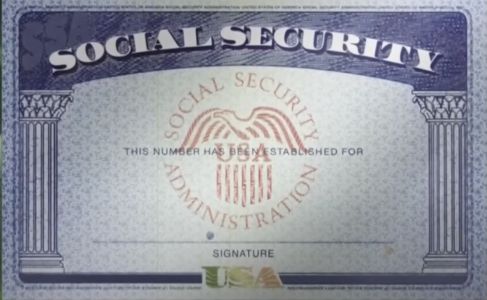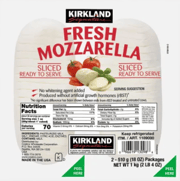Paper Social Security checks are here to stay—for now
By
Veronica E.
- Replies 3
If you’re one of the hundreds of thousands of Americans who still receive your Social Security benefits by paper check, there’s good news.
The Social Security Administration (SSA) has officially backed off its plan to eliminate paper payments.
For many older adults who rely on a routine and familiar system, this change of course offers a welcome sense of relief.
While electronic payments are faster and more secure, not everyone has access to the technology or banking tools needed to make that switch.
Here’s what’s behind the SSA’s reversal and what it means for your benefits moving forward.

Why the change in direction?
Just weeks ago, the SSA announced that it would begin phasing out paper checks starting in October.
The shift was aimed at encouraging more people to use electronic payments, which cost the government only 15 cents per transaction—compared to about 50 cents for mailing a paper check.
But the plan sparked concerns from lawmakers and advocates for seniors, including Senator Elizabeth Warren.
On July 17, after a meeting with Senator Warren, Social Security Commissioner Frank Bisignano confirmed that the agency would not move forward with the elimination.
“No one will be left behind,” he said, reassuring Americans who still rely on paper checks that they can continue receiving them.
Also read: Don’t miss out: One move you must make before major Social Security update takes effect
Who still receives paper checks—and why?
Roughly 600,000 Americans continue to receive Social Security by mail.
For some, this method feels more trustworthy or convenient. For others, it’s a necessity due to limited access to banking services.
Here are a few reasons some people stick with paper:
These realities prompted Senator Warren and other advocates to push back against the original SSA plan.
The result: a firm commitment that paper checks will remain available for those who need or prefer them.
Also read: Important Social Security news: benefit recipients face new changes
Why electronic payments are still encouraged
Even with paper checks remaining an option, the SSA continues to promote electronic payments for those who are able to make the switch.
Direct deposit and prepaid cards come with several benefits:
If you already have a bank account or feel comfortable with technology, switching to direct deposit could make managing your benefits easier.
But if not, sticking with paper checks is still entirely acceptable.
Also read: Social Security stirs backlash after unexpected message lands in inboxes
Concerns about SSA customer service
In addition to the payment issue, Senator Warren also raised concerns about customer service within the SSA.
Many recipients have reported long wait times on the phone, difficulty getting clear answers, and delays in disability claims.
The SSA says it’s making improvements:
Still, Senator Warren is calling for an independent audit to ensure the agency is truly meeting its customer service goals.
She also wants more accurate data about how many people are able to reach a live representative when they need help.
Also read: Where does Social Security stretch the furthest? A new report ranks the best—and worst—cities for retirees
What you should do now
Depending on how you receive your benefits, here are some simple next steps:
Whether you’re sticking with paper or embracing direct deposit, the choice is still yours—and we’ll keep you informed every step of the way.
Read next: New bipartisan proposal could reshape Social Security—here’s what it means for your future

Are you still receiving your Social Security by check? Have you made the switch to direct deposit, or are you considering it? What has your experience been like dealing with SSA customer service?
Share your story in the comments below. Hearing from others in the community can make navigating these changes easier for everyone.
The Social Security Administration (SSA) has officially backed off its plan to eliminate paper payments.
For many older adults who rely on a routine and familiar system, this change of course offers a welcome sense of relief.
While electronic payments are faster and more secure, not everyone has access to the technology or banking tools needed to make that switch.
Here’s what’s behind the SSA’s reversal and what it means for your benefits moving forward.

Some Social Security recipients will continue receiving paper checks after a recent policy reversal. Image Source: YouTube / WCNC.
Why the change in direction?
Just weeks ago, the SSA announced that it would begin phasing out paper checks starting in October.
The shift was aimed at encouraging more people to use electronic payments, which cost the government only 15 cents per transaction—compared to about 50 cents for mailing a paper check.
But the plan sparked concerns from lawmakers and advocates for seniors, including Senator Elizabeth Warren.
On July 17, after a meeting with Senator Warren, Social Security Commissioner Frank Bisignano confirmed that the agency would not move forward with the elimination.
“No one will be left behind,” he said, reassuring Americans who still rely on paper checks that they can continue receiving them.
Also read: Don’t miss out: One move you must make before major Social Security update takes effect
Who still receives paper checks—and why?
Roughly 600,000 Americans continue to receive Social Security by mail.
For some, this method feels more trustworthy or convenient. For others, it’s a necessity due to limited access to banking services.
Here are a few reasons some people stick with paper:
- Unbanked or underbanked: According to the AARP, about 1 in 5 households led by someone over 65 is unbanked or underbanked, meaning they lack full access to traditional financial services.
- Geographic barriers: Some recipients live in areas where banks are few and far between or may not feel confident navigating online banking platforms.
- Technology challenges: Not everyone has reliable internet access or feels comfortable managing their finances digitally.
These realities prompted Senator Warren and other advocates to push back against the original SSA plan.
The result: a firm commitment that paper checks will remain available for those who need or prefer them.
Also read: Important Social Security news: benefit recipients face new changes
Why electronic payments are still encouraged
Even with paper checks remaining an option, the SSA continues to promote electronic payments for those who are able to make the switch.
Direct deposit and prepaid cards come with several benefits:
- Faster payments: No delays from mail slowdowns or weather-related issues.
- Increased security: Less chance of a check being lost or stolen.
- Added convenience: No need to visit a bank or check-cashing service.
If you already have a bank account or feel comfortable with technology, switching to direct deposit could make managing your benefits easier.
But if not, sticking with paper checks is still entirely acceptable.
Also read: Social Security stirs backlash after unexpected message lands in inboxes
Concerns about SSA customer service
In addition to the payment issue, Senator Warren also raised concerns about customer service within the SSA.
Many recipients have reported long wait times on the phone, difficulty getting clear answers, and delays in disability claims.
The SSA says it’s making improvements:
- Phone wait times have dropped from 30 minutes in 2024 to 18 minutes in 2025.
- Disability claims backlogs are down 25 percent.
- SSI payments were completed five months ahead of schedule this year.
Still, Senator Warren is calling for an independent audit to ensure the agency is truly meeting its customer service goals.
She also wants more accurate data about how many people are able to reach a live representative when they need help.
Also read: Where does Social Security stretch the furthest? A new report ranks the best—and worst—cities for retirees
What you should do now
Depending on how you receive your benefits, here are some simple next steps:
- If you still get paper checks: You don’t need to do anything. Your payments will continue as usual.
- If you’re thinking about switching: Talk to your bank or a family member about setting up direct deposit. If you don’t have a bank account, the SSA offers a prepaid debit card option called Direct Express®.
- If you need help or have questions: Contact the SSA directly. Phone wait times have improved, so you may have better luck reaching someone now than in past years.
Whether you’re sticking with paper or embracing direct deposit, the choice is still yours—and we’ll keep you informed every step of the way.
Read next: New bipartisan proposal could reshape Social Security—here’s what it means for your future
Key Takeaways
- The Social Security Administration has reversed its decision to phase out paper checks after concerns about accessibility and equity.
- Paper checks will remain available for recipients who need or prefer them, while electronic payments are still encouraged for speed and security.
- Roughly 600,000 Americans—many older adults—continue to rely on mailed checks due to banking access, technology barriers, or personal preference.
- SSA claims customer service is improving, but an independent audit has been requested to confirm progress and transparency.
Are you still receiving your Social Security by check? Have you made the switch to direct deposit, or are you considering it? What has your experience been like dealing with SSA customer service?
Share your story in the comments below. Hearing from others in the community can make navigating these changes easier for everyone.






